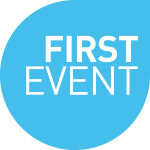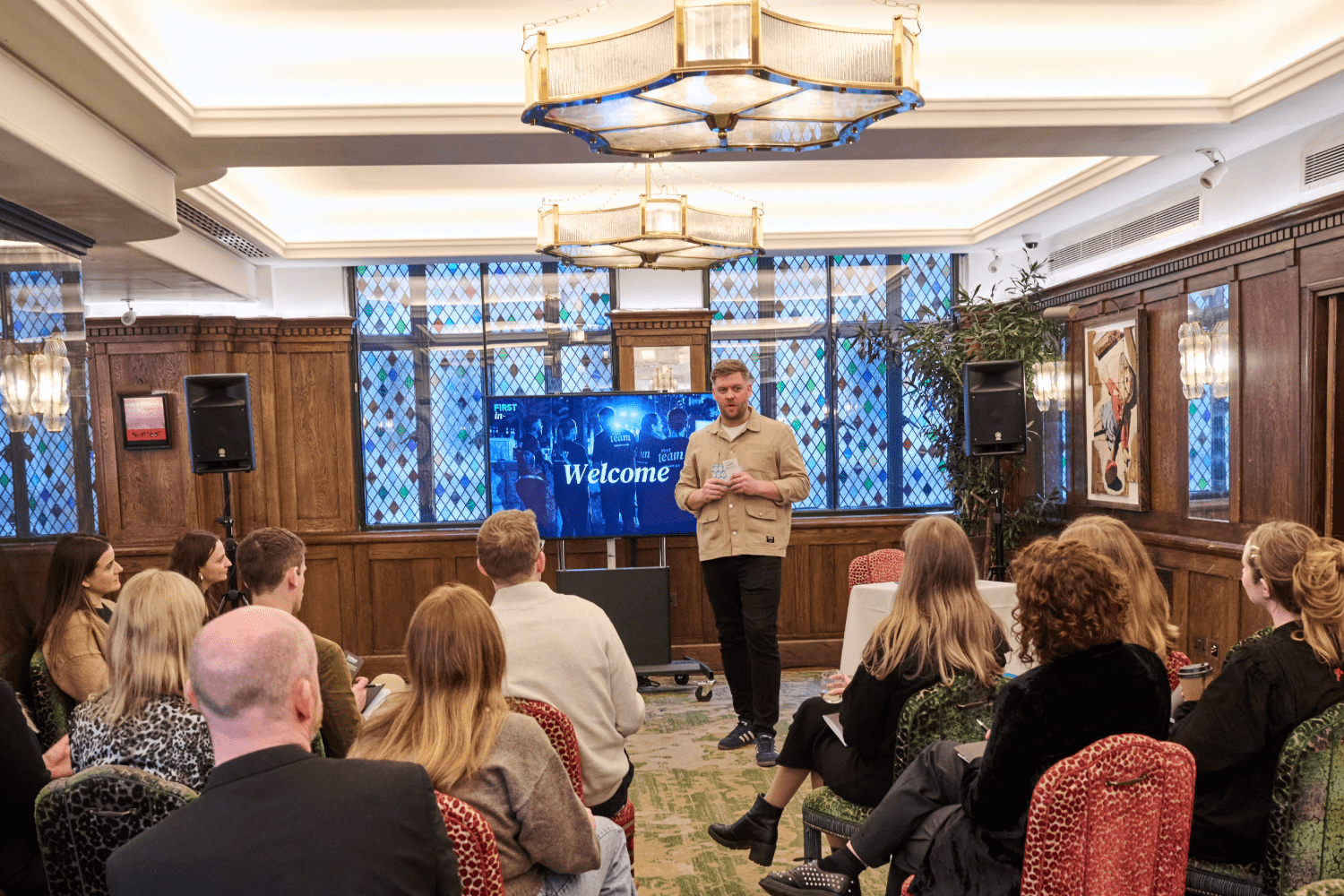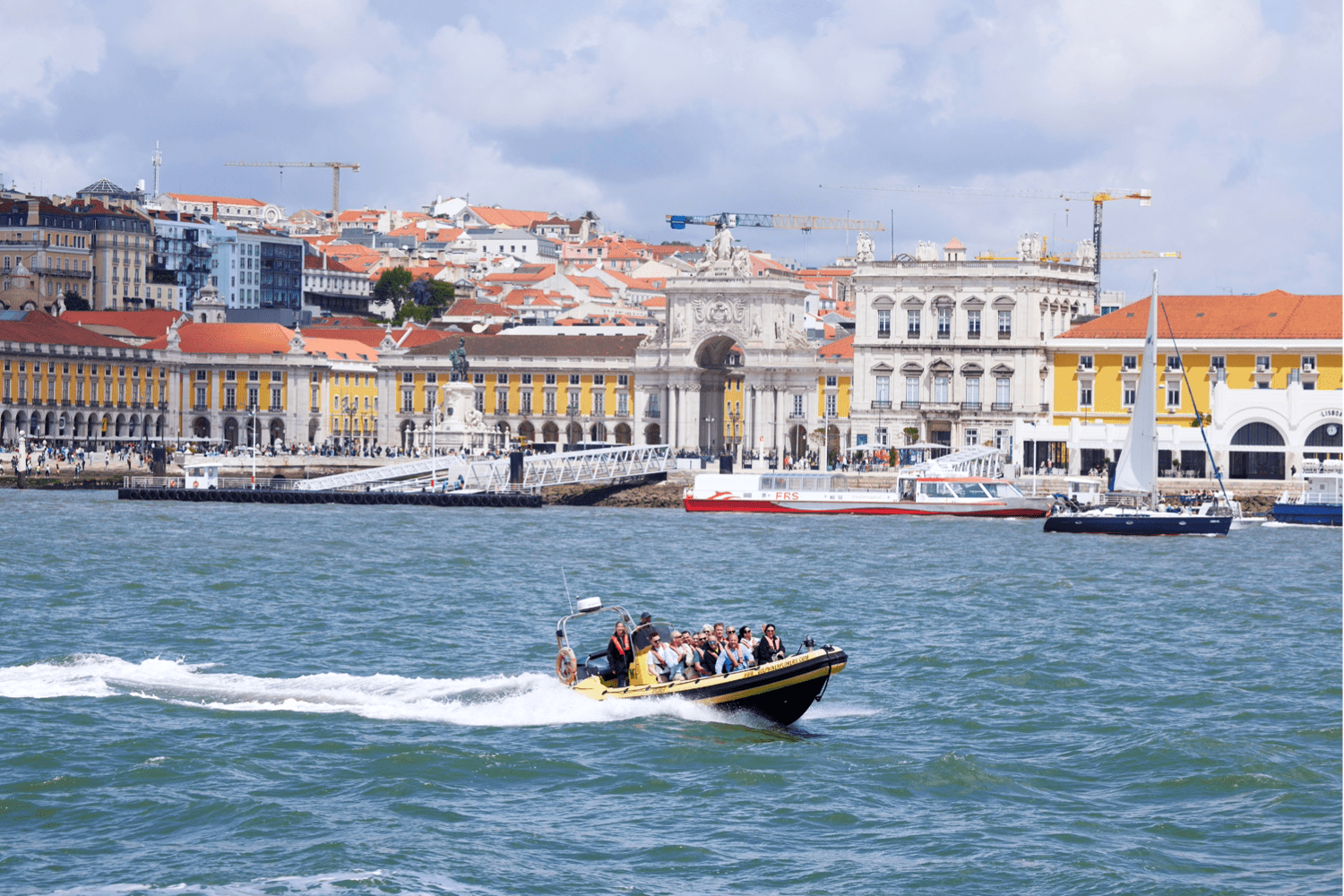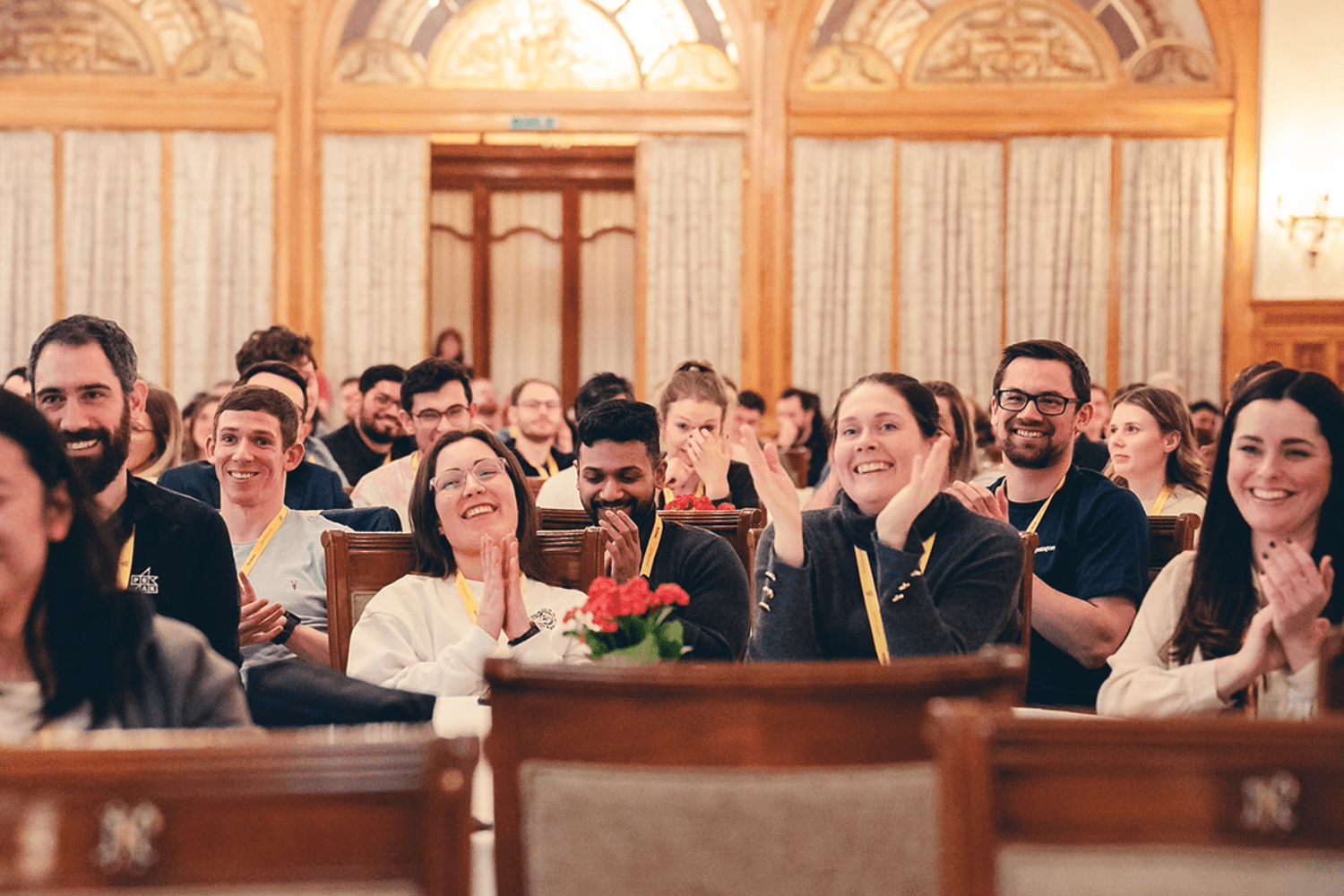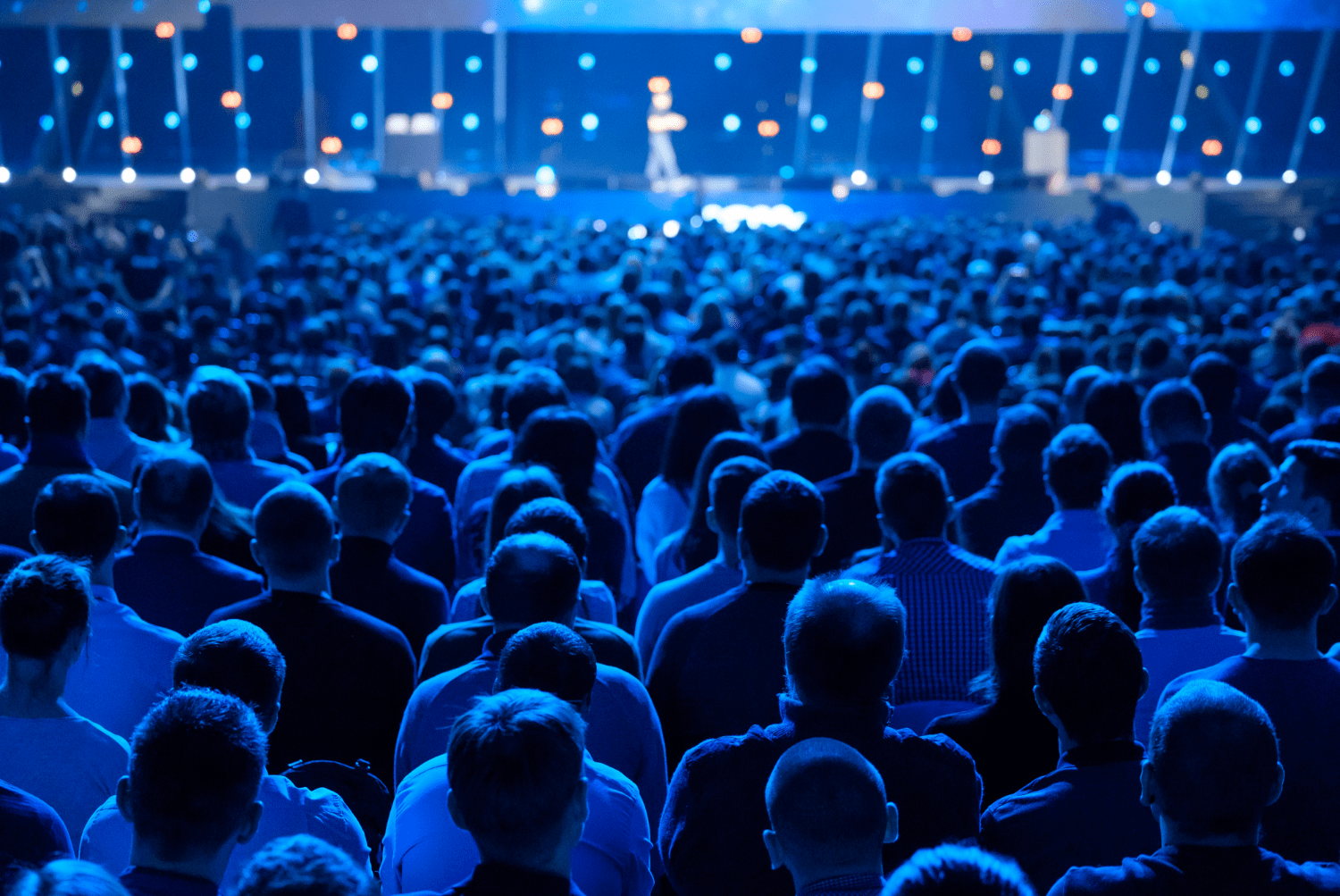
September 26, 2019
The importance of event marketing
When devising your marketing strategy, you’ll undoubtedly have heard of event marketing and the impact it can have on your business. There’s no disputing that it’s a popular marketing tactic. Currently, the UK events industry is worth £42 billion, and a hefty chunk of that is likely to be branded and corporate events, with 1.3 million UK business events held every year.
The question is, why are events still so important in the marketing landscape in this digitally focussed day and age?
Let’s kick off with the first (and most obvious) question:
What exactly is event marketing?
In a nutshell, event marketing is the term used for any event where a company’s product or service is promoted. This could take many different forms, from a simple breakfast presentation to an entire conference. You can even hold online events such as webinars, or simply sponsor an event to raise your company profile.
Simply put, any event where people are made aware of your company or product falls under the umbrella of event marketing. However, the marketing process doesn’t just take place during the event, and there is often pre and post-event promotion.
The event you decide to create depends on your business objectives. Some of the most common types include:
- In-person events such as trade shows, conferences, seminars, networking events or product launches. A report by the Content Marketing Institute revealed that 75% of content marketers found in-person events to be the most effective content marketing strategy.
- Online events such as webinars and live streaming events. These can be a more cost-effective option, often adopted by brands with tighter budgets.
Key reasons to introduce event marketing into your plans
- To increase brand and product awareness
If you’re looking to build and establish your brand, event marketing is one of the most impactful ways to bring a brand or product story to life. In fact, a study about the influence of events showed that 93% of consumers felt live events had a larger influence on them than television ads.
- To generate leads
A key reason to introduce event marketing into the mix is to generate leads. This is an opportunity for you to target multiple members of your intended audience in one place.
- To introduce new products and services to customers
Events give you a chance to engage your customers in a highly personal manner. It’s also a chance to inform and educate them about your products and services in a place where they’re more likely to be engaged. In a study by Event Track, 98% of users stated that they felt more inclined to purchase a product after attending an activation.
- To boost customer loyalty
Remember, events should at their core be about enjoyment for the attendees. Ultimately, the experience is what has an impact on customer retention and loyalty. Whether it’s a company conference or a product launch, you need to ensure that your customers or employees are having a good time. Don’t be afraid to inject a bit of fun into a simple company presentation – your attendees will be more likely to remember it and build positive associations with your brand!
What is experiential marketing?
You may also have heard of the term experiential marketing. This is often used interchangeably with event marketing, but is slightly more, well, experiential. It’s a marketing technique that creates an experience of your brand for consumers. Experiential activations usually include an immersive element such as product sampling or trialling – anything that allows prospective customers and buyers to engage with your brand or product!
Why is event marketing important for your company?
Although the modern marketing landscape is becoming more and more focussed on digital, event marketing is still seen as a top trend within it. Events give marketers a key opportunity to build relationships and trust with a prospective customer by offering that personal touch that digital can often lack. For consumers, it’s an opportunity to directly engage with companies and get a feel for their individual brand personality.
Not quite convinced? We’ll let the studies speak for themselves. Here are some key statistics that emphasise the importance of event marketing:
- According to a recent event marketing study, most event marketers believe that events are the most effective marketing channel (31%) over digital advertising, emails and content marketing.
- 84% of event attendees say that they have a more positive view of a brand, product or service after attending their event. (EMI & Mosaic, 2016)
- The most successful companies are spending 1.7x of the average marketing budget on live events. (Bizzabo, 2018)
Technology and social integration should be a key component of event marketing strategies
With the amount of time that people now spend online an average of over 6 hours, ignoring digital marketing channels such as social and email can be hugely detrimental to your event promotion plan. Use social media and email communications for event promotion – simple tactics such as an event hashtag for Twitter and a Facebook events page can go a long way in gaining visibility for your event. During the event, find ways to encourage employees and attendees to share as much content as they can online.
Social media can be highly effective for pre-event promotion. Here are some simple social tactics to employ in the lead up to your event:
- Twitter: Don’t forget to set up a hashtag. Promote your event through a series of scheduled tweets in the build-up, and engage an employee to live tweet during the event.
- Facebook: Use your event creative in any visuals and start posting about the event a few weeks before to encourage attendance. Create an event page and post about it in relevant Facebook groups.
- LinkedIn: Promote the event on relevant LinkedIn groups.
- Instagram: Post about the event in your Instagram Stories before and during the event. We’d recommend live videos – Eventbrite statistics show that 67% of viewers are more likely to buy a ticket to an event after watching a live video.
It’s clear that technology has an integral part to play in the future of event marketing:
- 87% of event planners planned to use augmented reality in 2018. 88% planned to use virtual reality. (Eventbrite)
- 96% of event creators planned to stream live video last year. This is due to reports that viewers spend eight times longer with live video than with pre-recorded video.
- 83% of event creators use an event app.
Read about the benefits of an event app in our blog post.
Key components of effective event marketing strategies
These are some of the most important elements of an effective event marketing strategy:
- Start by setting measurable goals
As with any marketing activation, kick off your event marketing plan with a list of objectives broken down into targeted goals. Each of these should be measurable so you can get a realistic idea of the success during your post-event analysis. Decide these at a planning stage so you aren’t left wondering whether your event was an actual success afterwards. Hire an event marketing agency if needed to ensure that measures for success are put in place.
- Have a clear theme
Create a cohesive event experience that reflects your brand. Think about the aesthetics – how will your venue look, what will the event collateral be like? The same creative should be used across all different phases of your event promotion, from the first Facebook post to the promotional materials you hand out at the event.
- Create a multifaceted event promotion plan
There’s no point putting in lots of work in event planning if you don’t promote it well. Generate maximum interest by using a mix of email marketing, social media, public relations, and some paid promotions to get the word out. Start communicating early enough and often enough so that you can have the best possible turnout for your event.
- Segmentation is vital for an effective event promotion plan
To ensure you’re getting the right attendees for your event, spend some time segmenting your promotions based on information such as job title and industry. Test a few different marketing messages to gauge the response before rolling out your promotional campaign.
Marketing an event
One of the most important components of a successful event is how well it’s promoted. Your promotion plan will depend on your specific objectives, but we’d recommend using a multi-channel approach to create a strong buzz in the weeks leading up to the event. This could include some of the following channels:
- E-communications: Use email marketing to send out communications about your event, from a teaser email, to an invite and a countdown. Segment your email lists and you can send out more personalised communications to those who will be most interested and likely to attend.
- Social media: With billions of people using social media around the world, this is one of the most effective channels to access a diverse audience set. Use Facebook for a targeted event promotional plan, with the ability to target your event ads based on demographic, location, and interest. Share news of your event on twitter with the official event hashtag, and incentivise users to invite attendees to receive discounts in the future. Social media should be a key part of your event promotion strategy to ensure that those local to your event can hear about it.
- Internal communications: Promote your event internally as well to maximise employee engagement. This could be done through email communications and competitions which enable staff to win event tickets for friends and family.
Post-event, make sure you follow up with both attendees and non-attendees. The best event marketing strategies will include a thorough follow up plan to keep your company top of mind for prospects. This can include email follow-ups, sending out promotional offers, and nurturing any leads.
Incentive events: employee engagement marketing
Event marketing doesn’t just have to be reserved for consumers and external stakeholders. In fact, events can be one of the most effective methods for you to boost employee engagement. A recent study by Harris showed that 78% of millennials prefer to spend on experiences or events rather than physical items, which shows how modern employees may value more than just monetary benefits.
Provide group travel experiences or plan internal events if you’re looking to improve staff morale and create a more positive work environment. A number of studies have shown that having real friendships in the workplace can make the work experience more positive for staff members. Give your employees the opportunity to forge strong bonds with their colleagues by planning more employee engagement events.
Let’s state the obvious: whether it’s a consumer event or an internal employee engagement event, your events need to be memorable and reflect your brand if they are to have the desired effect. It simply isn’t a case of displaying your company’s branding around a venue. Your event marketing strategies should consider your business objectives and how your distinct brand personality can be conveyed through an experience.
At First Event, we can help you create an event that is truly memorable for all attendees. Get in touch to find out more about how we can help with results-driven event marketing and all types of corporate events.
